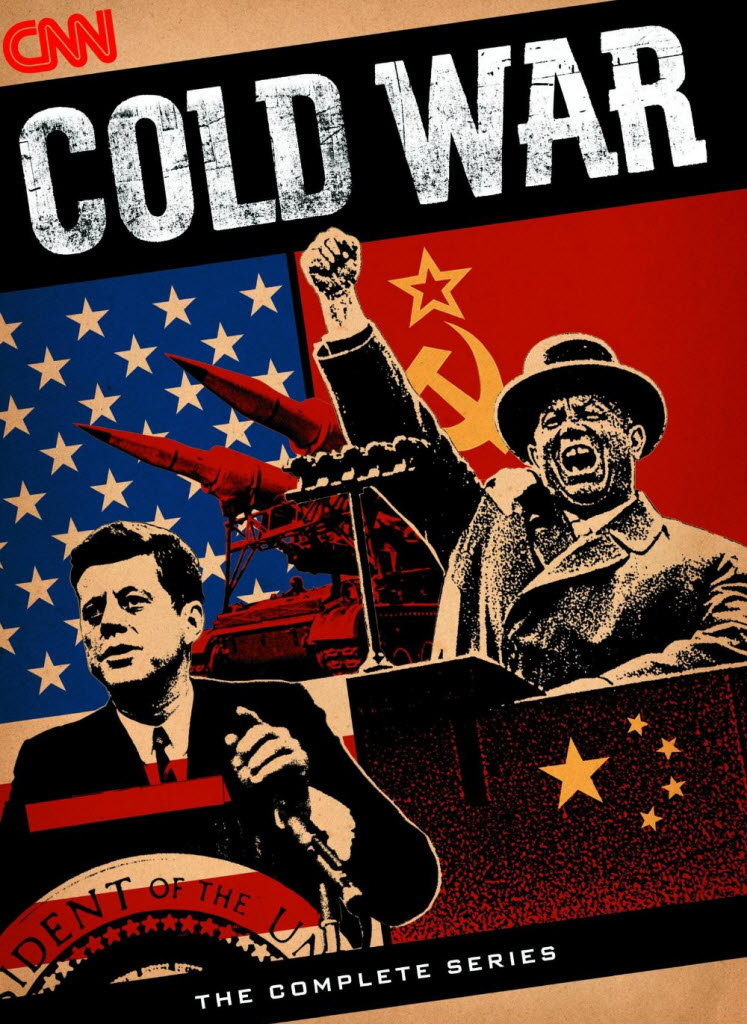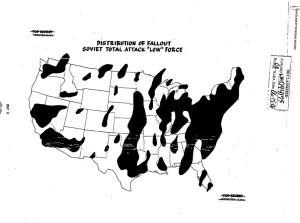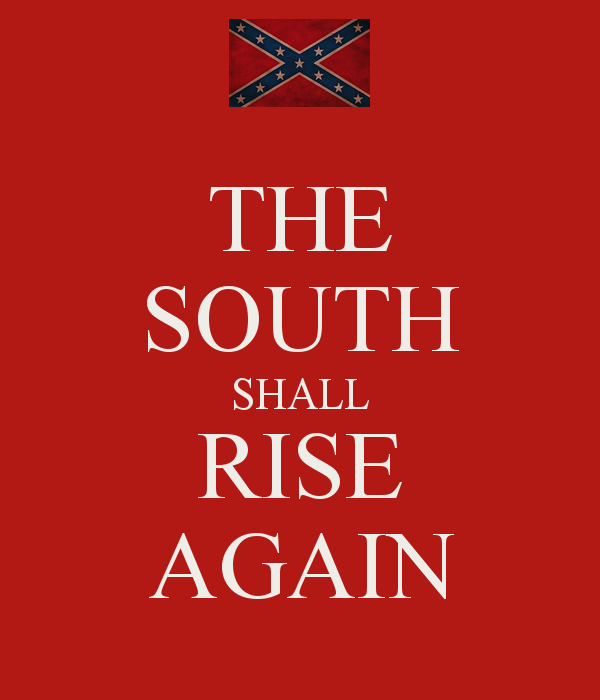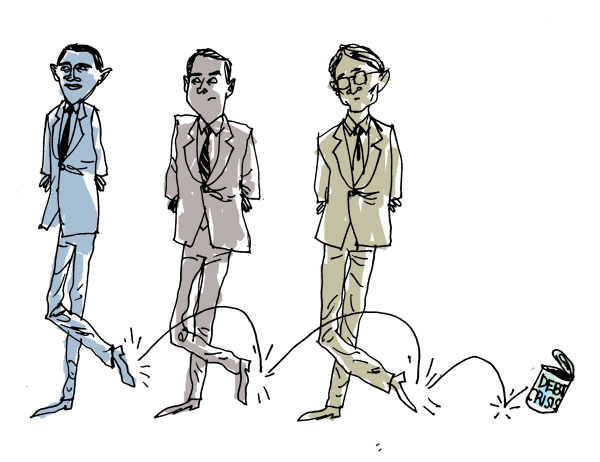And We Call Ourselves the Human Race
And We Call Ourselves the Human Race
Those were the words of President John F. Kennedy on July 20, 1961. Today, the National Security Archive has released some excerpts of the things going on during the Cold War during the Berlin Crisis.
The National Security Council and the President were listening to a briefing on the consequences of a nuclear war. It was stated that a submarine launched missile strike from the Soviets would result in 48-71 million Americans killed immediately.
Estimated distribution of radioactive fall-out on U.S. caused by a Soviet retaliatory launch-on-warning (LOW) attack in mid-1965 on a range of U.S. target systems: urban-industrial (also Canadian), air defenses (also Canadian), SAC bases, naval bases, command-and-control, and military depots.
This was a secret study that was initiated by Kennedy’s predecessor, President Eisenhower, that was described the Secretary of State Dean Rusk as “an awesome experience”. With those words, Kennedy uttered his famous words, … “and we call ourselves the human race”.
As the Cold War continued and each side was privy to the scenarios of mass destruction we find that they were terrified and began to avoid conflict and pursue détente.
The declassification of NESC reports raises questions about the claim that the “U.S. was never the aggressor” in war games and other exercises depicted as occurring in an “official future.” This claim needs to be considered carefully because the Subcommittee produced several reports — namely, for 1962 and 1963 — that postulated the United States as the initiator of preemptive nuclear attacks, close to a classic first strike. Whether a preemptive strike is “aggressive” depends on the point of view; the concept of preemption depends on accurate strategic warning of an attack, so it could be seen as an aggressive response to imminent aggression. But a preemptive strike based on an inaccurate warning would be both aggressive and catastrophic. In any event, well before 1962, preemption was an element of U.S. nuclear war planning and U.S. military planners continued to assess whether it was advantageous or not.








